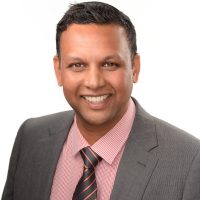Articles / Will Medicare changes offset ‘GP crisis’?

0 hours
These are activities that expand general practice knowledge, skills and attitudes, related to your scope of practice.
0 hours
These are activities that require reflection on feedback about your work.
0 hours
These are activities that use your work data to ensure quality results.
These are activities that expand general practice knowledge, skills and attitudes, related to your scope of practice.
These are activities that require reflection on feedback about your work.
These are activities that use your work data to ensure quality results.
The proportion of medical graduates who list general practice as their first choice has hit its lowest point in more than a decade, with just 13.1% putting it as their top preference in the most recent Medical Deans Report.
While general practice still ranks second on the list of specialties, behind internal medicine/physician, it’s not enough to make up for the numbers of people leaving—and Healthed’s survey of more than 1600 GPs suggests 45% are feeling disengaged and contemplating other options (more to detail to come on this in future articles).
RACGP president Nicole Higgins has said she’s hopeful Medicare changes, particularly to bulk-billing incentives, would pull more graduates in.
But will it?
When Healthed asked GPs to what extent they agreed that the changes would attract more people to general practice, 38% chose the ‘meh’ option—neither agree nor disagree—while 36% disagreed and just 25% agreed.

According to the Medical Deans Report which surveyed 1000 graduates, the number one factor influencing medical graduates’ specialty preference was that it aligns with their personal values. Followed by atmosphere and work culture.
Yet these things are often ignored in policy debates.
But they did come up in survey responses when Healthed asked what the College could do to make general practice a more attractive and satisfying profession.
“Fifteen minute medicine is inadequate for managing chronic conditions and mental health issues etc. Longer consults result in less income and a skewed profile for Medicare. However medicine is more rewarding if consults are longer,” one GP said.
“Education and good clear guidelines are important for me. Some paid and funded study leave comparable to specialists would be good. It is hard to make time for education and along with everything else ends up taking up what should be family time,” said another.
It’s a point that Australian Doctors Federation chairman Dr Aniello Iannuzzi makes too. “We’re trying to build up a bit of the culture and intellectual base of the profession again, because I think something’s been genuinely lost there,” he said.
“I think the College, at the moment has lost its focus, they’re getting too distracted by politics,” Dr Iannuzzi said.
“Look in fairness, it’s membership driven. They’ve got very clear directions from the membership, that the members want them to be more political, but that really should be a role for the AMA or some other GP organisation. And as a result, when the college has to interact so much with the government to deal with money issues and workforce issues, you’re gonna lose something…You’re too much at the mercy of the government.”
Over the coming weeks Healthed will be exploring more about this issue. Stay tuned.

Multiple Sclerosis vs Antibody Disease – What GPs Need to Know

Using SGLT2 to Reduce Cardiovascular Death in T2D – Important Updates for GPs

Menopause and MHT: Maximising Benefits & Minimising Risks

Peripheral Arterial Disease

Yes
No
Listen to expert interviews.
Click to open in a new tab
Browse the latest articles from Healthed.
Once you confirm you’ve read this article you can complete a Patient Case Review to earn 0.5 hours CPD in the Reviewing Performance (RP) category.
Select ‘Confirm & learn‘ when you have read this article in its entirety and you will be taken to begin your Patient Case Review.
Menopause and MHT
Multiple sclerosis vs antibody disease
Using SGLT2 to reduce cardiovascular death in T2D
Peripheral arterial disease
